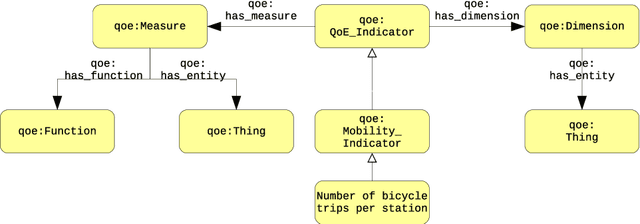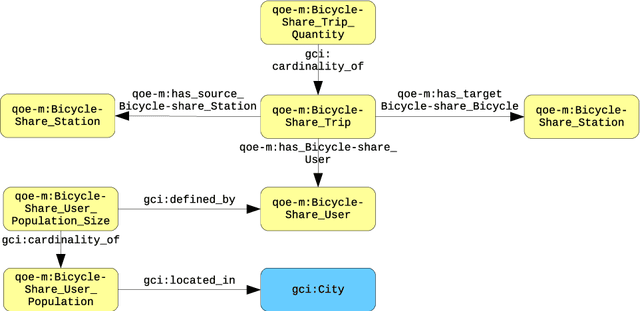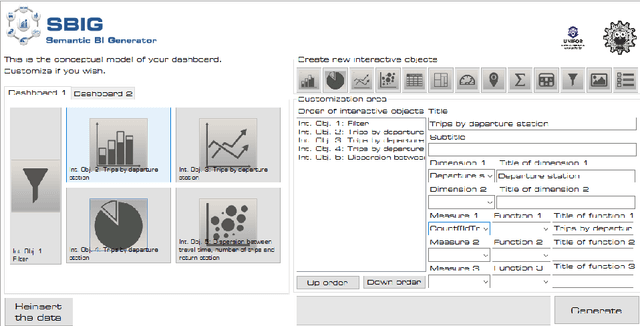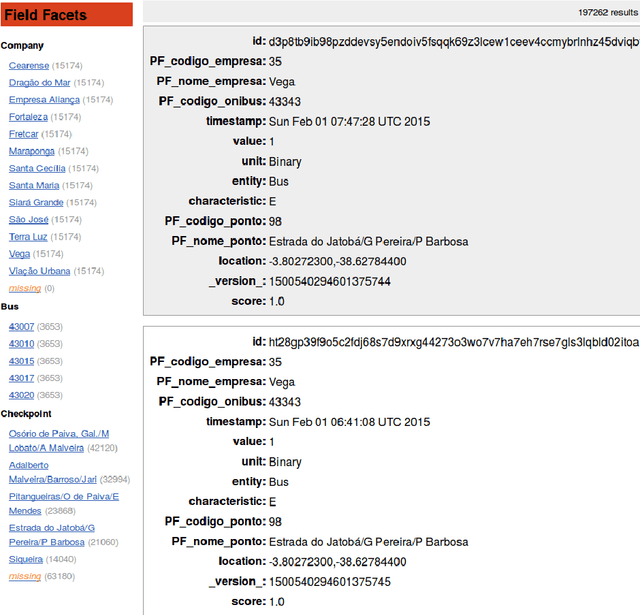Paulo Pinheiro
From Data to City Indicators: A Knowledge Graph for Supporting Automatic Generation of Dashboards
Apr 06, 2017



Abstract:In the context of Smart Cities, indicator definitions have been used to calculate values that enable the comparison among different cities. The calculation of an indicator values has challenges as the calculation may need to combine some aspects of quality while addressing different levels of abstraction. Knowledge graphs (KGs) have been used successfully to support flexible representation, which can support improved understanding and data analysis in similar settings. This paper presents an operational description for a city KG, an indicator ontology that support indicator discovery and data visualization and an application capable of performing metadata analysis to automatically build and display dashboards according to discovered indicators. We describe our implementation in an urban mobility setting.
Human-Aware Sensor Network Ontology: Semantic Support for Empirical Data Collection
Apr 06, 2017



Abstract:Significant efforts have been made to understand and document knowledge related to scientific measurements. Many of those efforts resulted in one or more high-quality ontologies that describe some aspects of scientific measurements, but not in a comprehensive and coherently integrated manner. For instance, we note that many of these high-quality ontologies are not properly aligned, and more challenging, that they have different and often conflicting concepts and approaches for encoding knowledge about empirical measurements. As a result of this lack of an integrated view, it is often challenging for scientists to determine whether any two scientific measurements were taken in semantically compatible manners, thus making it difficult to decide whether measurements should be analyzed in combination or not. In this paper, we present the Human-Aware Sensor Network Ontology that is a comprehensive alignment and integration of a sensing infrastructure ontology and a provenance ontology. HASNetO has been under development for more than one year, and has been reviewed, shared and used by multiple scientific communities. The ontology has been in use to support the data management of a number of large-scale ecological monitoring activities (observations) and empirical experiments.
Contextual Data Collection for Smart Cities
Apr 06, 2017


Abstract:As part of Smart Cities initiatives, national, regional and local governments all over the globe are under the mandate of being more open regarding how they share their data. Under this mandate, many of these governments are publishing data under the umbrella of open government data, which includes measurement data from city-wide sensor networks. Furthermore, many of these data are published in so-called data portals as documents that may be spreadsheets, comma-separated value (CSV) data files, or plain documents in PDF or Word documents. The sharing of these documents may be a convenient way for the data provider to convey and publish data but it is not the ideal way for data consumers to reuse the data. For example, the problems of reusing the data may range from difficulty opening a document that is provided in any format that is not plain text, to the actual problem of understanding the meaning of each piece of knowledge inside of the document. Our proposal tackles those challenges by identifying metadata that has been regarded to be relevant for measurement data and providing a schema for this metadata. We further leverage the Human-Aware Sensor Network Ontology (HASNetO) to build an architecture for data collected in urban environments. We discuss the use of HASNetO and the supporting infrastructure to manage both data and metadata in support of the City of Fortaleza, a large metropolitan area in Brazil.
 Add to Chrome
Add to Chrome Add to Firefox
Add to Firefox Add to Edge
Add to Edge